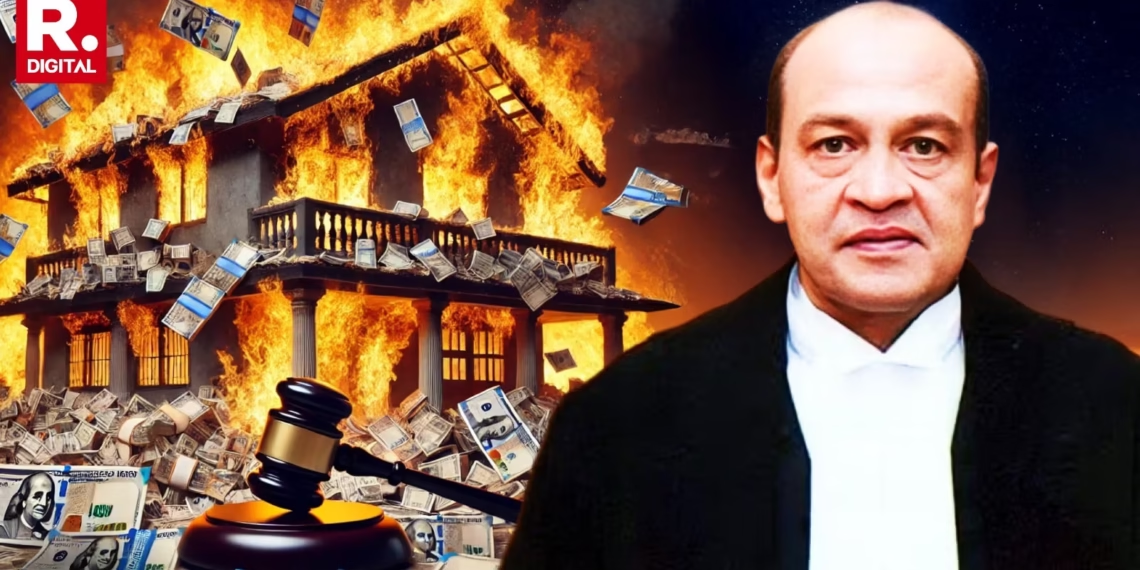A Bench led by Justice Dipankar Datta says procedure followed by CJI has constitutional backing; Justice Varma may still contest in impeachment proceedings.
BY PC Bureau
New Delhi, August 7: The Supreme Court on Wednesday dismissed a writ petition filed by Allahabad High Court judge Justice Yashwant Varma challenging the findings of an in-house inquiry that indicted him in the ‘case-at-home’ scandal. The court also rejected his plea against the recommendation by then Chief Justice of India Sanjiv Khanna to the President and Prime Minister for his removal.
A bench of Justices Dipankar Datta and AG Masih, which had reserved judgment on July 30, held that the petition was not maintainable due to Justice Varma’s participation in the inquiry and his later challenge to the panel’s authority.
#BREAKING Supreme Court today DISMISSED the writ petition filed by Justice Yashwant Varma challenging the in-house inquiry report related to allegations concerning the recovery of burnt currency notes.
Pronouncing the judgment, Justice Dipankar Datta clarified that the Court had… pic.twitter.com/4kjAquEHv2
— Bar and Bench (@barandbench) August 7, 2025
Despite this, the bench examined five constitutional issues raised in the case, stating their significance warranted consideration.
Key Observations:
Legality of the Inquiry: The court ruled the in-house inquiry procedure has legal sanction and does not amount to a parallel or extra-constitutional mechanism.
Constitutional Validity of Para 5B: The provision does not violate Articles 124, 217, or 218, nor does it infringe any fundamental right of a High Court judge.
Compliance with Procedure: The CJI and the committee adhered strictly to the prescribed procedure, barring the uploading of videos and photographs related to the incident. The bench noted this omission did not impact the outcome or violate procedure.
Forwarding the Report: The court upheld the validity of Paragraph 7(2), which allows the CJI to send the report to the President and PM. It also ruled that Justice Varma was not entitled to a pre-forwarding hearing under the procedure.
Right to Be Heard: The court clarified that just because another judge was given a hearing in a similar case, it does not establish a binding right for all.
READ: The Breaking Point: Why Kuki CSOs Are Threatening to Shut Down Manipur’s Lifeline
The court reserved Justice Varma’s right to defend himself in any future impeachment proceedings and dismissed a separate writ petition by Advocate Mathews J. Nedumpara seeking an FIR against the judge.
Senior Advocates Kapil Sibal and Mukul Rohatgi appeared for Justice Varma, whose name was anonymised as ‘XXX’ in the petition. Sibal argued that the CJI’s recommendation, based on an internal inquiry, could not be grounds for impeachment under Article 124(4), which requires “proved misbehaviour” or “incapacity”.
Justice Datta countered that the in-house inquiry is a preliminary, fact-finding mechanism and its report is not treated as legal evidence. Thus, the petitioner could not claim to be aggrieved at this stage.
The controversy erupted after a large stash of currency notes was found in an outhouse at Justice Varma’s official Delhi residence during a fire on March 14. Following public outcry, CJI Khanna appointed a three-judge panel comprising Justices Sheel Nagu, GS Sandhawalia, and Anu Sivaraman. After Justice Varma refused to resign, the report—based on 55 witness statements and electronic evidence—was sent to the President and Prime Minister.
The committee found Justice Varma’s conduct post-incident to be “unnatural,” prompting adverse inferences.














